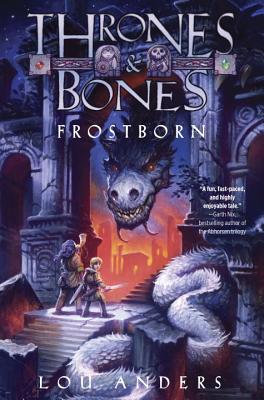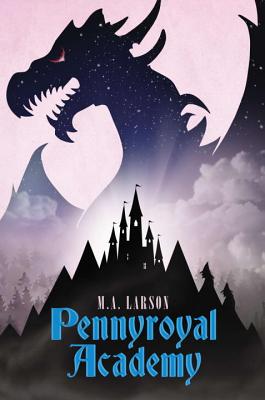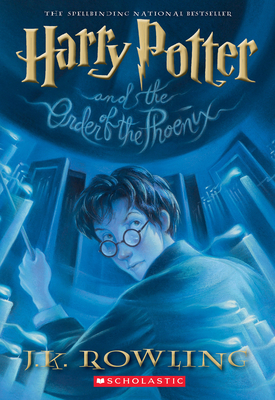Victoria and I are still posting away on Twitter, Tumblr,
and Facebook but now that we've finished Harry Potter and the Chamber of Secrets we wanted to discuss some of our thoughts here more in depth.
V: I enjoyed Chamber of Secrets much more
than I anticipated. It's not my favorite HP book, and though I obviously love
all of the books in the series, Sorcerer's Stone and Prisoner
of Azkaban stand out so much more to me, leaving Chamber of
Secrets behind in the dust. But I really liked it this time. I'm much
fonder of this book than I thought, and I think this is because I actually
slowed down and paid more attention to the book than I normally would have.
Have you experienced this with either of the books we've read so far?? I
know most people seem to like books 4 and 5 best (which is strange to me
because those two are my least favorite), so what's your opinion on these two
early books?? Things really start to get darker in Prisoner of Azkaban (as
if they weren't dark enough already), so I'm curious to know what you think of
the first two books, since they are generally considered to be more
lighthearted and are aimed at a younger audience. The beginning of the
series is very special to me because Harry, Ron, and Hermione were all closest
to my age in these books (I was 8). However, having finished Chamber of
Secrets again and really enjoyed it this much, I might have to
reevaluate my long-standing favorites list of Potter books.
M: I've loved both of these books
the second time around. Chamber of
Secrets was a bit different than Sorcerer's
Stone because even though there is plenty of magic it is less magical;
maybe that's just me... I was surprised by how dark this book is. As you say,
these two early books are the most lighthearted and this one is full of some
pretty heavy stuff. I don't recall connecting more heavily with any one book in
the series over another. I connect heavily with scenes involving Neville
Longbottom of which I think Book Five has the most - so Order of Phoenix all the way!
My big thing coming out of Chamber of Secrets though is the
foreshadowing!! I know that you have been noticing this stuff from the
beginning but anyone familiar with later events in the series cannot deny that
JK basically knew what was going to go down in the end at this early date. She
begins to build on the relationship between Harry and Voldemort in a way that
affects the last actions of the series. It's brilliant really.
Then,
though I'm hesitant to bring this up, there's the Ron-Hermione thing. Rowling
and Emma Watson recently questioned rather or not Ron and Hermione would have
ended up together/had a happy life together. First let's take away the fact
that they are children when we know them and we know nothing of their adult
life experiences and just deal with this - they are twelve years old in this
book and Ron is already so dead loyal to Hermione. Something happened between
Books One and Two that changed their dynamic. I will say this, Ron is already
clearly in love with Hermione and his reactions to her being abused and harmed
in this book prove that. And it's heartwarming and adorable and I like to
imagine them happy together in their later years even if Hermione is far more
accomplished than Ron. Agreed?
V: I completely agree about the
foreshadowing and the Ron/Hermione thing 100%. Ron clearly has deep feelings
for her, even if at this point they are only friendship-feelings. He works very
hard to defend her in this book, and I really loved it. But I also love that no
matter how much he defends Hermione, he still treats her like just Hermione. He
doesn't put her on a pedestal and refuse to see her flaws or anything. He still
finds her annoying sometimes, he still thinks she's silly and weird and reads
too much...it's what makes their friendship and later their romantic
relationship so normal and believable. Because sure, Ron makes fun of Hermione
plenty, but when push comes to shove, he'll support her completely.
I think you make a very good point
about the fact that we don't see these characters fully into their adult lives.
I personally think Ron changes a LOT by the end of the series. It's impossible
to watch these two 12 year olds and decide whether or not they could succeed romantically.
I pointed out SO MUCH FORESHADOWING
in my copy of the book. It’s all over the place. I don't know if you noticed,
but they even mentioned Mundungus Fletcher early on in this book. Chamber of Secrets and Half-Blood Prince are very closely connected
books, even JKR said so, and it's obvious and impossible to ignore once you
know it's there. I paid special attention to Dumbledore in the closing scenes
when Harry hands him Riddle's diary and explains what it did. Because
Dumbledore knows a lot more in that scene than he lets on, and you can usually
tell. He's quite interested in such an object.
I also really loved Dobby in this
one, though he's changed a little for me. I noticed that Dobby really does only
care about keeping Harry safe. Dobby isn't interested in trying to stop the
danger or save everyone else, he's interested in keeping Harry safe. This,
combined with Dobby's beautiful explanation of what Harry means to the lowly
like himself really moved me. Harry literally is Dobby's greatest hope. Harry
is the one shining light in a world of darkness for Dobby and other such
creatures. It helps explain Firenze's reaction to Harry in Book 1, and it's
something that, reading the books mostly from Harry's perspective, we really
don't get to see. Just like Harry, we have NO IDEA what the dark days were
like. We get some of it by Book 7, but it's not quite the same. We don't really
have the benefit of understanding just how much hope and joy Harry brought to
the entire Wizarding world. Dobby gives us (and Harry) a little glimpse into
that, and I loved it.
For the record, I super love Lockhart as a character. He's
so terrible and over the top that I can't help but love him. Every scene he's
in is absolutely hilarious.
M: I totally love Lockhart too! I'm
always curious about how that happens - here's this person that anyone would
detest upon actually meeting them but the author has molded him into something
so gloriously over the top that you can't help but enjoy the scenes that he is
in. Gilderoy Lockhart is just beyond and I love it even if it is hard to
reconcile the actual havoc he leaves in his wake (not at Hogwarts necessarily
but throughout his entire life).
Oh, and Firenze. I am so intrigued by the centaurs and I'm excited to encounter
them again later. They embody the sort of beautiful mystery of magic for me.
Within Hogwarts we have the actual learning of magic and skills needed to
perform it but out there in the Forbidden Forest and beyond we have this wealth
of creatures that are in harmony with the magical world - that's very
intriguing.
I hadn't really thought about what Harry means to lower lifeforms in the
Wizarding world, but I thought a lot about the...should we call it racism?
classism? I guess overall prejudice would be the most apt phrasing. Chamber of Secrets is saying a lot about
prejudice and judging on merit rather than by blood (or what have you), and
what is interesting about that is that Harry completely lacks these prejudices
- he has difficulty being unkind to garden gnomes. Growing up Muggle (oh man,
that should totally be the title of your memoir by the way) Harry considers all
magical creatures equal and equally amazing. As does the reader, which has real
world implications. In so many ways this series serves as a morality fable, and
like all the best children's literature before it you are so entertained you
don't even realize you are learning to be a better person.
V: Exactly! There's just so much!
It's what makes these books so magical. There's a whole world out there we
never even get to see. The fact that it feels so real that parts that don't
even exist in the books can exist in my head is its own kind of magic. I also
completely agree about the prejudice ideas you mentioned. That becomes
incredibly important in this book and once again foreshadows the development of
the rest of the series. Book 2 is the first time Harry has to come to terms with
the fact that the Wizarding world is not all magic, wonder, and happiness.
There are some really dark things going on, and they don't all stem from
Voldemort.
So that wraps up Chamber of Secrets!
We've watched Harry face down He-Who-Must-Not-Be-Named twice already, and now
it's time to take a turn into the first book in the series that does not
feature the series' main villain. We're delving into Prisoner of Azkaban, and I
know I certainly can't wait to meet some of my favorite characters in the
series once again! Get ready for "double, double, toil and trouble!"










